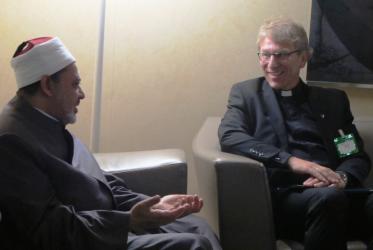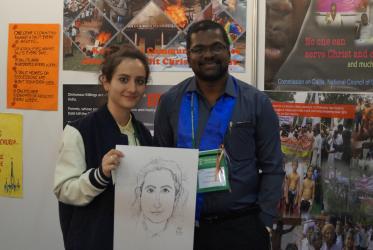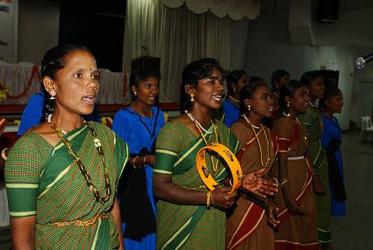Displaying 1 - 16 of 16
The cry of the Papuans in Indonesia
14 November 2019
Paving the way for ecumenical studies, learning English in Bossey
24 September 2018
"We have our work cut out for us"
10 August 2017
Dialogue flourishes between WCC, Muslim Council of Elders
30 September 2016
‘Unprecedented times of hopelessness’ in Holy Land
11 July 2016
“No one can serve Christ and caste!”
07 November 2013
Theological education initiative begins in Seoul
28 October 2013
Churches celebrate Week of Prayer for Christian Unity
23 January 2013








